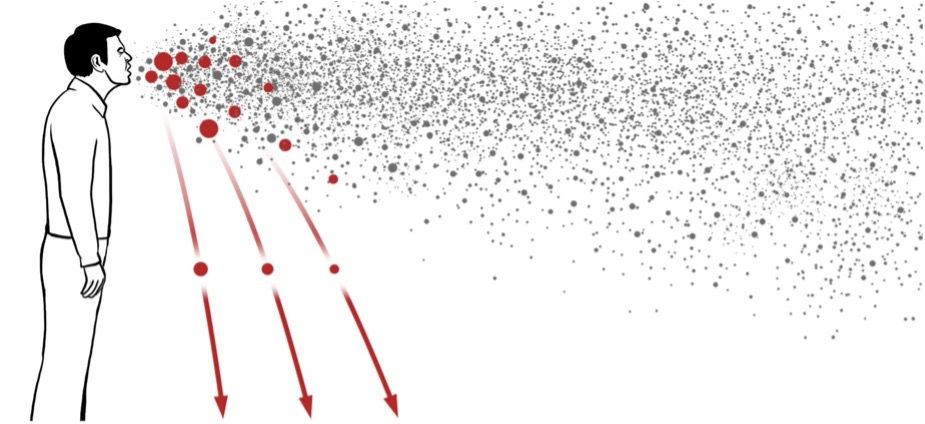Aerosol - the concept behind the spread of COVID-19
- Carlota Champalimaud
- Feb 2, 2021
- 2 min read
Covid-19, one of the greatest challenges of the century. A challenge that we still don’t know how to defeat after fighting it for over a year.
Transmission is the key to solving this crisis. Even though there are many theories to how this virus is transmitted, only one has proven to be true in our natural environment (i.e., not under laboratory/ test conditions), airborne transmission, also known as the transmission of aerosols.

According to the world health organisation, airborne transmission is defined as the “spread of an infectious agent caused by the dissemination of droplet nuclei (aerosols) that remain infectious when suspended in air over long distances and time” (WHO, 2019). In other words, airborne transmission is the spread of a disease, or virus (or any other infection agent) through small droplets. These droplets are so small and light that they are suspended in the air unless another force acts on it. The scientific name for these droplets is aerosol. What is interesting about this transmission is that the infectious particles will remain infection and dangerous while in the air.
When we cough, talk, sneeze or even exhale (without our mask or hand over our mouth), we disperse aerosols in the air. Depending on the force we apply, the aerosols might travel further. On average they do not travel more than 2 meters, but anyone in a close radius might still be able to inhale the aerosols. Moreover, they can also travel through air currents, which is why air conditioning is not recommended during the spread of virus. Aerosols can also remain in the air for short periods of time. A study found that they remain in the air from minutes to even hours which is why we must always wear masks, even if no one is currently around us.
As new Covid-19 strains begin to surge, vaccines become less effective, and the money we have put into them goes to waste. We are playing offensive with a player we barely know how to defeat, a player who is constantly adapting to our strategies. We must pay defensive, because that what we understand. By protecting ourselves, it wouldn’t matter if the virus changed or adapted, because our strategies (i.e., using masks and social distancing) remain effective. By playing an effective defence, we would be able to stop the spread of the virus, thus containing it. New Zealand is a great example, because they were able to contain the virus for over 100 days by simply protecting their citizens.





Comments